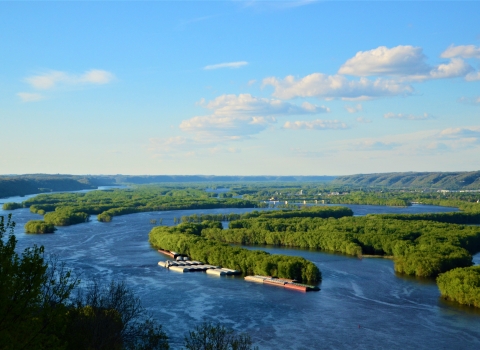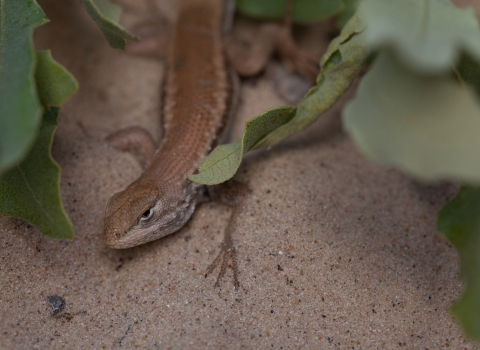ATLANTA – The U.S. Fish and Wildlife Service is proposing critical habitat revisions and additions for the two subspecies of the West Indian manatee. The Service proposes a total revised designation of 1,904,191 acres for the Florida manatee and a new 78,121-acre designation for the Antillean manatee in Puerto Rico. All areas proposed for critical habitat for both subspecies are occupied; no unoccupied areas are proposed.
The Endangered Species Act requires the Service to designate and revise critical habitat for listed species based on the best scientific data available. Designation of critical habitat does not affect land ownership, establish a refuge or preserve, and has no impact on private landowners taking actions on their land that do not require federal funding or federal permits. Federal agencies are required to consult with the Service to ensure that any actions they fund, authorize, or carry out do not destroy or harm critical habitat. However, when the habitat is occupied by the species, like in the case of the manatee, agencies are already taking steps to avoid jeopardizing the species. Therefore, little additional conservation effort is usually needed beyond what is already in place.
“The Service is dedicated to the recovery and protection of manatees, which face significant threats such as declining food sources and water pollution,” said Southeast Regional Director Mike Oetker. “Critical habitat designations ensure that federal agencies and the public are informed of the species habitat needs and better able to reduce threats and contribute to their long-term survival."
Significant threats to both subspecies include watercraft collisions, habitat loss (including seagrass loss), coastal development, human interactions, natural processes (including cold weather events and harmful algal blooms) and climate change climate change
Climate change includes both global warming driven by human-induced emissions of greenhouse gases and the resulting large-scale shifts in weather patterns. Though there have been previous periods of climatic change, since the mid-20th century humans have had an unprecedented impact on Earth's climate system and caused change on a global scale.
Learn more about climate change . Loss of natural and manmade warm-water habitat threatens the cold-intolerant Florida manatee. Antillean manatee numbers are declining due to limited migration within its range resulting in isolated populations and low genetic diversity.
Manatees are large marine mammals protected under the ESA and the Marine Mammal Protection Act. They feed on freshwater and marine plants, as well as seek out sources of fresh drinking water when in marine and estuarine habitats. The Florida and Antillean manatees appear similar and can typically only be distinguished through skeletal measurements or genetic analysis. A difference commonly reported between the two subspecies is size, with the Florida manatee typically being larger and heavier than the Antillean manatee.
Florida manatees are found along the U.S. Atlantic and Gulf of Mexico coasts, as well as in northern portions of the Caribbean, from the Bahamas to Turks and Caicos. Antillean manatees occur along northern portions of the Caribbean, including Cuba, Hispaniola, Jamaica, Puerto Rico, rarely in the Virgin Islands; in Central America from Mexico’s southeast Caribbean coast to the Caribbean coast of Panama; Trinidad and Tobago; and south to Brazil’s Atlantic coastline.
Basic habitat needs of both manatees include forage, fresh water, shelter, travel corridors, and warm water. However, they require different habitat conditions. The most significant habitat features for Florida manatees are warm water and winter forage availability, specifically the proximity of forage to warm-water sites. The key habitat features necessary for the Antillean manatee are seagrass, shelter, and freshwater, also within proximity of each other.
Comments on the proposed critical habitat designations must be received by Monday, November 25, 2024. Information on how to submit comments is available at www.regulations.gov by searching under docket number FWS-R4-ES-2024-0073.
Requests for public hearings must be received in writing by Friday, November 8, 2024 at the following address: Nikki Colangelo, Acting Classification and Recovery Division Manager, U.S. Fish and Wildlife Service, Florida Ecological Services Field Office, 777 37th Street, Suite D-101, Vero Beach, Florida 32960; telephone 772–226–8138.
For more information visit our FAQ page or these species profile pages for the Florida manatee and the Antillean manatee.
The mission of the U.S. Fish and Wildlife Service is working with others to conserve, protect, and enhance fish, wildlife, plants, and their habitats for the continuing benefit of the American people. For more information on our work and the people who make it happen, visit https://www.fws.gov/program/southeast-region. Connect with us on social media: Facebook, X (formerly known as Twitter), Flickr, and YouTube.



